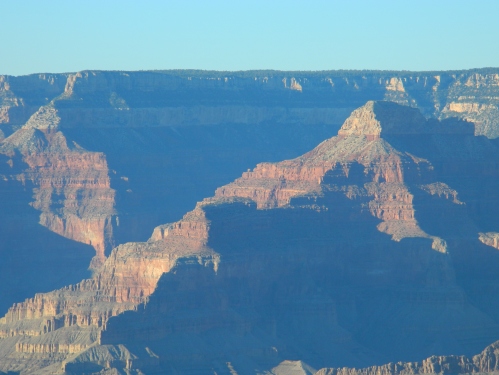From, “Nature: Essays and Addresses,” (Harvard Library, 1934)
In a series of blog entries, I intend to spend time unraveling Emerson’s concept of nature and its relation to the self. It is my hope that I will confirm my hunch about Emerson as a vitalist romantic. And in a broader sense, I am keen to discover the narrative legacy Emerson’s representation of nature-self unity that still finds expression in American culture today. In a nutshell, Emerson is one of those interesting cross-over figures who is both literature and political though. It is my argument that political thought is just as formative in creating American notions of identity and myth. What that means, I will let his texts and my more nuanced arguments articulate for themselves.
In the introduction to Nature, Emerson notes that there is very little that man’s art can change in nature, saying
Nature, in the common sense, refers to essences unchanged by man; space, the air, the river, the leaf. Art is applied to the mixture of his will with the same things, as in a house, a canal, a statue, a picture. But his operations taken together are so insignificant, a little chipping, baking parching, and washing that in an impression so grand as that of the world on the human mind, they do not vary the result.
Necessary but insignificant. It is not through transformative work that man transforms himself. Emerson’s position on the boundless quantity of nature allows man to work to see oneself everywhere in nature but also as an inconsequential force against it. By “against it” I mean that Emerson underestimates the real destructive capacity that man has in nature. I also mean to suggest that Emerson is not actually dealing with nature tout court, but nature mediated from the perspective of intellect and aesthetics.
There is support for this reading. Later (in “Discipline,” a small section in Nature), Emerson says that all of nature is a mediation, and during this discourse as in earlier ones, language and communication are subsumed under the category of nature. So, it seems that nature is perhaps mistaken for artifice and that is why is it unlimited, infinitely wise, and a mediate force between man and unity. In fact, I would argue that the “nature” Emerson refers to is an aestheticized representation of nature infused with poetic and intellectual meaning, and from this standpoint, it is easy to imagine nature as a mediating force, instead of the object of mediation that man only reaches through intellectual capacities.
